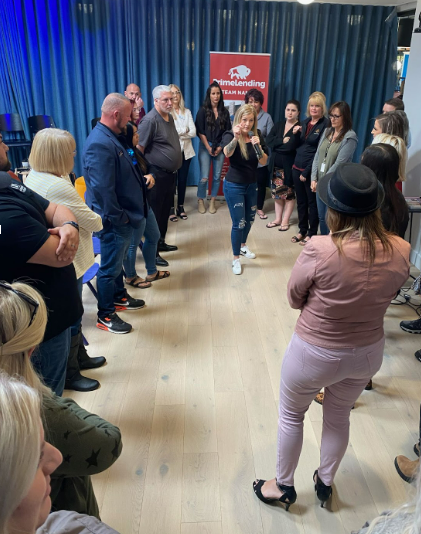What is Marketing Strategy
A marketing strategy encompasses a small business comprehensive approach to engaging potential consumers and converting them into loyal customers of their products or services. This strategic plan incorporates essential components such as the business unique value proposition, crucial brand messaging, insights into the demographics of the intended audience, and various other overarching elements.
The Benefits of Marketing Strategy
- Competitive advantage refers to factors that allow a company to produce goods or services better or more cheaply than its rivals.
- To delivering market goods and services that are modified to satisfy a specific customer’s needs.
- To evaluate the viability of a new service or product through research conducted directly with potential customers.
- Small business need to create a powerful branding
- To ensure fast and reliable distribution network
The 4Ps of Marketing Strategy in Business
Often referred to as the Marketing Mix, are fundamental concepts in business that collectively form the core elements of a business approach to successfully bring a product or service to the market. These 4Ps provide a framework for small businesses to strategically plan and execute their marketing strategy.
1. Product
The product element entails the tangible item or intangible service that a business offers to fulfill the needs and desires of its target customers. This includes the product’s design, features, quality, branding, and any additional value it brings to consumers. Small businesses must carefully tailor their products to meet customer demands and stand out in a competitive market.
2. Price
Price refers to the monetary value assigned to the product or service. Pricing strategies involve considerations of factors such as production costs, competitor prices, perceived value by customers, and overall market dynamics. The chosen pricing strategy should align with the target audience’s willingness to pay while also covering the business expenses and generating profits.
3. Place
Place refers to the distribution channels and methods through which the product reaches customers. This involves decisions about the most effective ways to make the product accessible to the intended audience. Distribution strategies can encompass various options, including direct sales, retail partnerships, e-commerce, and more, depending on the nature of the product and the target market.
4. Promotion
Promotion involves the tactics used to raise awareness, create interest, and encourage the purchase of the product or service. This includes advertising, public relations, sales promotions, social media campaigns, and other communication efforts. Effective promotion strategies aim to communicate the product’s value proposition and benefits to the target audience.
Small Business Marketing Strategy Tips
- Know your audience
- Emphasize your value proposition
- Stay focus on singular goods and objectives
- Capitalize on short-term plays
- Double down on what works.
- Understand the power of existing customers.
- Use free promotional tools.
- Create a website to own your online presence.
- Consider blogging to attract prospects for your website.
- Promote yourself on social media.
- Collaborate with influencers to create brand awareness.
- Create short-form video content.
- Stick to a social media posting schedule.
- Invest in ads.
- Make sure you’re capturing web prospects’ information.
- Use email marketing to nurture leads.
- Manage relationships with a CRM.
- Lean into word of mouth as a promotion channel.
- Connect with other local businesses.
6 Basic Marketing Strategy Types
- Content Marketing – Content marketing involves creating and sharing valuable, relevant, and consistent content to attract and engage a target audience. This content can take various forms, including blog posts, videos, infographics, and more. The goal is to establish the brand as an authority in its industry and build trust with potential customers over time.
- Inbound Marketing – Inbound marketing is a holistic approach that focuses on attracting potential customers through relevant and helpful content and experiences. It encompasses content marketing, SEO, social media, and more to draw prospects in rather than pushing a message outward. Inbound marketing aims to provide value to customers at every stage of their journey.
- Social Media Marketing – Social media marketing involves using social media platforms like Facebook, Instagram, Twitter, and LinkedIn to connect with your target audience. It includes creating and sharing content, running targeted ads, and engaging with followers to build brand awareness, foster community, and drive traffic to your website.
- Search Engine Optimization – SEO is the practice of optimizing your website and content to rank higher in search engine results pages (SERPs). By using relevant keywords, creating high-quality content, and improving website structure, SEO helps increase organic (non-paid) traffic and visibility in search engines like Google.
- Email Marketing – Email marketing involves sending targeted messages and content to a list of subscribers. It’s an effective way to nurture leads, engage with customers, and promote products or services. Personalized and automated email campaigns can drive conversions and customer loyalty.
- Paid Media Advertising – Paid media advertising refers to the use of paid channels to promote your brand or products. This includes pay-per-click (PPC) advertising on search engines, display ads on websites, social media advertising, and more. Paid media allows for precise targeting and immediate visibility, making it a valuable complement to other marketing strategies.
Tools for Planning Marketing Strategies
- Define Company Mission and Objectives – Business Model Canvas
- Analyze Current Position – SWOT Analysis
- Define marketing strategies – Keller’s Brand Equity Pyramid
- Implement and Control Marketing Executive – Marketing Data Dashboard
5 Companies With Effective Marketing Strategies
Spotify
Spotify’s marketing strategy revolves around delivering a unique user experience. By offering personalized playlists, curated recommendations, and exclusive content, Spotify engages its users in a way that keeps them coming back for more. Their “Discover Weekly” and “Release Radar” playlists use algorithms to suggest music based on individual preferences, enhancing user engagement and satisfaction. This strategy focuses on providing value through tailored content, leading to increased loyalty and brand affinity.
GoPro
GoPro’s marketing strategy heavily relies on user-generated content (UGC). They encourage their customers to share their action-packed videos and photos captured using GoPro cameras. By showcasing real-life adventures, extreme sports, and travel experiences, GoPro creates a strong sense of community around their products. This UGC approach not only serves as authentic testimonials but also taps into the aspirational nature of adventure, enticing potential customers to participate and invest in the brand.
Taco Bell
Taco Bell’s marketing strategy centers on a deep understanding of their target audience. They have effectively embraced a youthful, fast-food culture and integrated it into their branding and messaging. Engaging with memes, pop culture references, and social media trends, Taco Bell resonates with millennials and Gen Z. By speaking their audience’s language, Taco Bell has established a strong online presence, fostering a sense of relatability and creating a loyal customer base.
Red Bull
Red Bull’s marketing strategy is built on pushing boundaries and taking risks. They sponsor extreme sports events, high-adrenaline stunts, and unique experiences that align with their “gives you wings” slogan. By associating their brand with excitement and energy, Red Bull has managed to create a lifestyle around their product. This approach not only sets them apart from competitors but also positions them as a symbol of innovation and excitement.
Vogue
Vogue’s marketing strategy includes robust loyalty programs that cater to fashion enthusiasts. They offer exclusive content, early access to collections, and personalized recommendations to their loyal subscribers. By nurturing a sense of belonging and exclusivity, Vogue builds a community around its brand. This strategy leverages the emotional connection people have with fashion and the desire to stay ahead in the style game, ultimately driving subscriptions and engagement.
How Improv Workshop helps in Curating Marketing Strategy to Small Business
Enhances Creativity and Innovation
Improv workshops encourage participants to think on their feet, come up with ideas on the spot, and embrace unexpected situations. These skills can be directly applied to brainstorming ideas for your business marketing strategies that stand out. Small businesses often need to find unique angles to compete with larger competitors, and improv can foster the creativity needed for innovative marketing campaigns.
Encourages Adaptability
In improv, participants learn to adapt quickly to changing scenarios. In the fast-paced world of marketing, being able to pivot and adjust strategies based on market trends or customer feedback is crucial. Improv workshops teach individuals to embrace change and uncertainty, which can translate to agile marketing strategies.
Improves Communication Skills
Effective marketing strategy requires clear communication of ideas and messages. Improv teaches active listening, effective verbal communication, and non-verbal cues. These skills are valuable when crafting marketing materials, writing compelling copy, and engaging with customers both online and offline.
Fosters Collaboration
Improv is inherently collaborative, relying on participants to build upon each other’s ideas. This translates well into team-based marketing strategy development. Small businesses often have tight-knit teams, and the ability to work together seamlessly can result in well-coordinated and cohesive marketing efforts.
Promotes Customer-Centric Thinking
In improv, performers focus on understanding and responding to the audience’s reactions. This customer-centric mindset can be applied to marketing by emphasizing customer needs, preferences, and feedback. Small businesses can tailor their marketing strategies to address specific customer pain points and desires.
Boosts Confidence
Public speaking and presenting are essential in marketing strategy. Improv workshops help participants build confidence in expressing their ideas and presenting in front of others. Confident marketers are more likely to convey their messages persuasively and connect with their target audience.
Stimulates Storytelling Skills
Improv involves creating stories on the spot. This skill is transferable to crafting engaging narratives for marketing campaigns. The ability to tell a compelling story can captivate the audience’s attention and create a memorable brand image.
Embraces Failure as Learning
In improv, mistakes are seen as opportunities to learn and grow. This mindset can be transformative in marketing, where not all campaigns will succeed. Small businesses can use failures as chances to refine their marketing strategies and find what truly resonates with their audience.
Drives Authenticity
Improv encourages participants to be authentic and genuine in their interactions. In marketing, authenticity is key to building trust with customers. Small businesses can create marketing messages that feel sincere and resonate with their brand’s values.
Ready to transform your marketing strategy into a dynamic force that captivates your audience?
Ready to transform your marketing strategy into a dynamic force that captivates your audience? Engage your business team in an immersive improv workshop today! Harness the creativity, adaptability, and collaboration that improv offers to craft marketing strategies that truly resonate.
Reach out to us now to schedule an improv workshop tailored to your business needs. Let’s unlock your team’s potential and ignite a new era of engaging marketing strategies. Don’t miss out on this opportunity to revolutionize your approach and drive unparalleled success. Contact us at hello@improvteamculture.com, or BOOK A CALL so we can discuss how this workshop can be customized to meet your business needs.




